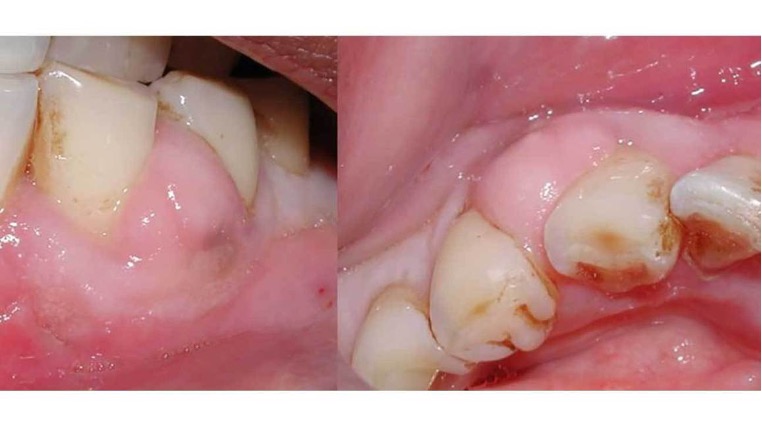Are you aware treating your gum disease could save your life?
Periodontal diseases, also known as gum disease or periodontitis are some of the most common infections in The Bahamas. In fact, 75% of all Bahamian adults over the age of 40 have some form of periodontal disease.
In this column we will discuss gum disease and its relationship with some medical conditions.
Periodontal diseases are painless until their advanced stages. If left untreated, periodontal diseases can cause bad breath and bleeding gums. It is the leading cause of tooth loss in adults. Most adults lose their teeth due to gum disease rather than cavities or just normal aging.
Despite these facts, periodontal diseases are preventable. Also, the disease process gives the periodontist and dentist a guide as to the state of your overall health.
The word “periodontal” literally means around the tooth. It is a gum infection caused by bacterial plaque that destroys the supporting structures, which hold your teeth in your mouth. Plaque is a sticky colony of germs that constantly forms on your tooth surfaces. It is your responsibility with the aid of your dental health care provider to remove it regularly. If the plaque is not removed, it becomes hard and called “tartar”. When the tartar gets below the gum line then you are at risk for disease. These germs destroy the gums and bone and the teeth eventually loosen.
There are several forms of periodontal disease; including Gingivitis, Mild, Moderate and Severe Periodontitis. Signs of gum disease include bleeding gums, red or swollen gums, receding gums, bad breath or loose teeth. As mentioned before, most of these signs have no pain associated with them.
Studies clearly show that Periodontal Diseases are directly associated with Heart Disease, Low Birth Weight Babies, Diabetes, Osteoporosis and more. Women are particularly susceptible if they are pregnant with poor dental hygiene.
It appears that these same germs that cause the disease produce toxins resulting in premature contractions. The natural result is an earlier than expected delivery. The toxins also damage the lining of the coronary blood vessels around the heart thereby worsening their medical condition. As far as heart disease is concerned, the germs causing gum disease get into the blood stream and collect on your heart valves. Persons who suffer from gum disease have a greater chance of suffering from a cerebral stroke or heart attack. To this end, good dental health and proper gum care can optimize the functioning of one’s heart.
Diabetes and other medical conditions can also contribute to your periodontal disease. Research shows that a person with uncontrolled diabetes is more likely to have periodontal disease as well making the disease more aggressive.
If you are pregnant, taking certain medications, diabetic or diagnosed with osteoporosis it is advisable that you visit your dental healthcare provider for a gum evaluation.
Treating this disease can be as simple as a dental cleaning (prophylaxis), scaling and if required laser treatment, to return your gums to a healthier state.
The benefits of treatment include fresh breath, more youthful appearance, increased function thus a greater ability to chew and digest your food. Most importantly, you improve your overall health.
You can help to prevent periodontal disease by brushing and flossing with regular attendance to your dental professional. A cleaning two times per year is a good place to start and maintain your health. Remember, good hygiene practices and regular professional care are the keys to preventing periodontal disease and decreasing the risk of worsening other medical conditions.
Your teeth were meant to last a lifetime. The greater benefit is the improvement in your overall health.
Dr. Kendal V. O. Major is Founder and CEO of Center for Specialized Dentistry which is a comprehensive family dental practice operating in Nassau and Freeport. He is the first Bahamian Specialist in gum diseases and dental implants since 1989. He also is a certified Fastbraces provider. His practice is located at 89 Collins Avenue, Nassau at (242)325-5165 or [email protected].



Anatomy of the Healthy and Diseased Periodontal Tissues – Gum swelling caused by a periodontal abscessed tooth





